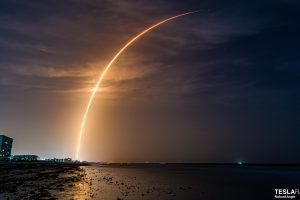- 🚨 SpaceX’s Starlink faces sanctions in Brazil due to noncompliance with a government-ordered block on Elon Musk’s X.
- 🏛 Brazil’s Supreme Court required X to appoint a legal representative, leading to its ban.
- 🛰 Starlink is one of the few services still allowing access to X, prompting regulatory scrutiny.
- 📜 Potential sanctions for Starlink include fines and license withdrawal.
- 🕵️♀️ Elon Musk suggests using a VPN to circumvent the block, escalating tensions with Brazilian authorities.
The digital landscape is evolving rapidly, with internet accessibility gaining the status of a basic human right in numerous parts of the world. Companies like SpaceX, through its Starlink service, are at the forefront, aiming to provide high-speed internet access in various corners of the globe. However, the ambitious initiatives of such companies often find themselves at odds with governmental regulations and geopolitical constraints. The current issue facing Starlink in Brazil due to sanctions is a notable example of this complex dance between innovation and regulation.
What Happened? Understanding the Current Sanctions
The Government’s Initial Directive
Brazil’s political and legal landscape imposed a crucial yet stringent requirement: Elon Musk’s social media platform ‘X’ was mandated to appoint a legal representative within the country. This directive from the Brazilian Supreme Court was a pivotal step to ensure that platforms operating in Brazil have accountability and adhere to local legal frameworks.
Consequences of Noncompliance
Failure to comply with this directive resulted in the blocking of ‘X’. A pronounced ripple effect of this decision was the spotlight it placed on internet service providers (ISPs) like Starlink. While most ISPs complied and blocked access to the platform, Starlink continued to offer accessibility to ‘X’, thus attracting regulatory scrutiny.
The Legal and Economic Implications for Starlink
Potential Sanctions Imposed
SpaceX’s Starlink, known for its high-speed internet service, is now under the governmental microscope, facing potential sanctions that range from hefty fines to the possibility of license withdrawal. Such sanctions could significantly hinder Starlink’s operations and expansion plans within Brazil.
The Rivalry and Repercussions
Elon Musk’s direct suggestion for Brazilian users to bypass restrictions using Virtual Private Networks (VPNs) has intensified tensions. This recommendation stands starkly against the Brazilian government’s aim to exercise control and implement its judiciary regulations autonomously.
Navigating the Legal Quagmire
Exploring Legal Queries
In understanding the complexities of this situation, some fundamental questions arise:
- Why is Starlink facing sanctions in Brazil?
- The crux lies in Starlink’s noncompliance with government orders to block ‘X’, which violates the Supreme Court’s directive.
- How can Brazilian users access ‘X’ despite the ban?
- Beyond Starlink’s continued provision, users might resort to VPNs as suggested by Musk.
- What legal actions are being taken against ‘X’ in Brazil?
- Potential legal actions could include fines and regulatory limitations on Starlink, with broader ramifications on its operational license.
Broader Implications for Global Tech Enterprises
A Cautionary Tale
This scenario serves as a cautionary tale for technology enterprises about the importance of aligning operational strategies with local legal frameworks. Misalignment could result not only in setbacks within national borders but also strain international relations and corporate reputations.
The Interplay of Technology, Privacy, and Governance
Furthermore, this incident underscores the ongoing global discourse around technology, privacy, and governance. As tech giants continue to expand into new territories, they must navigate the nuanced interplay between offering groundbreaking services while respecting sovereignty and legal mandates of the regions they serve.
Conclusion: Finding a Path Forward
In conclusion, as technological advancements continue to blur borders, the alignment between global enterprises and local governance becomes indispensable. Companies like SpaceX and platforms like ‘X’ will need to find a harmonized path that respects both innovation and regulation, paving the way for a cooperative digital future.





